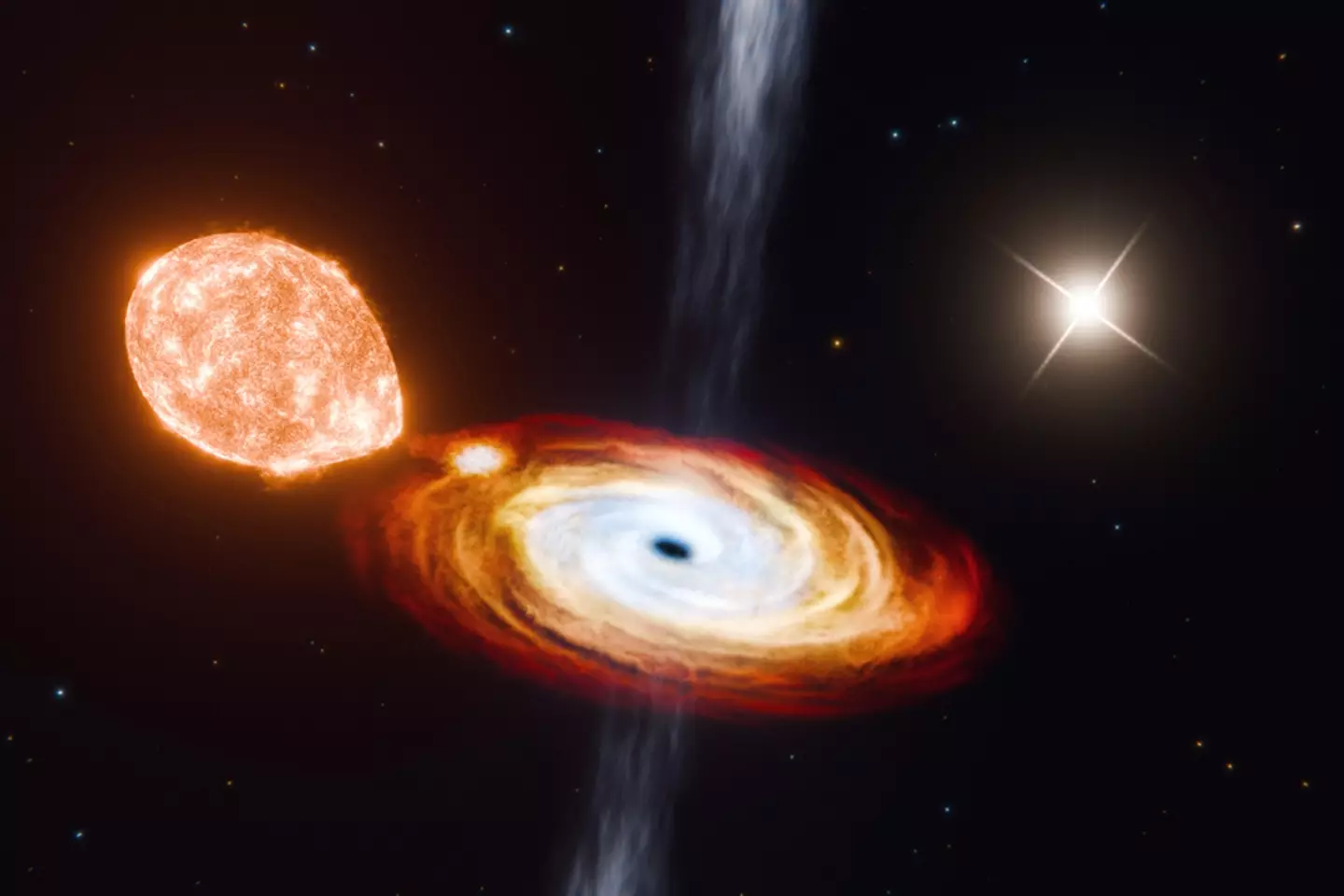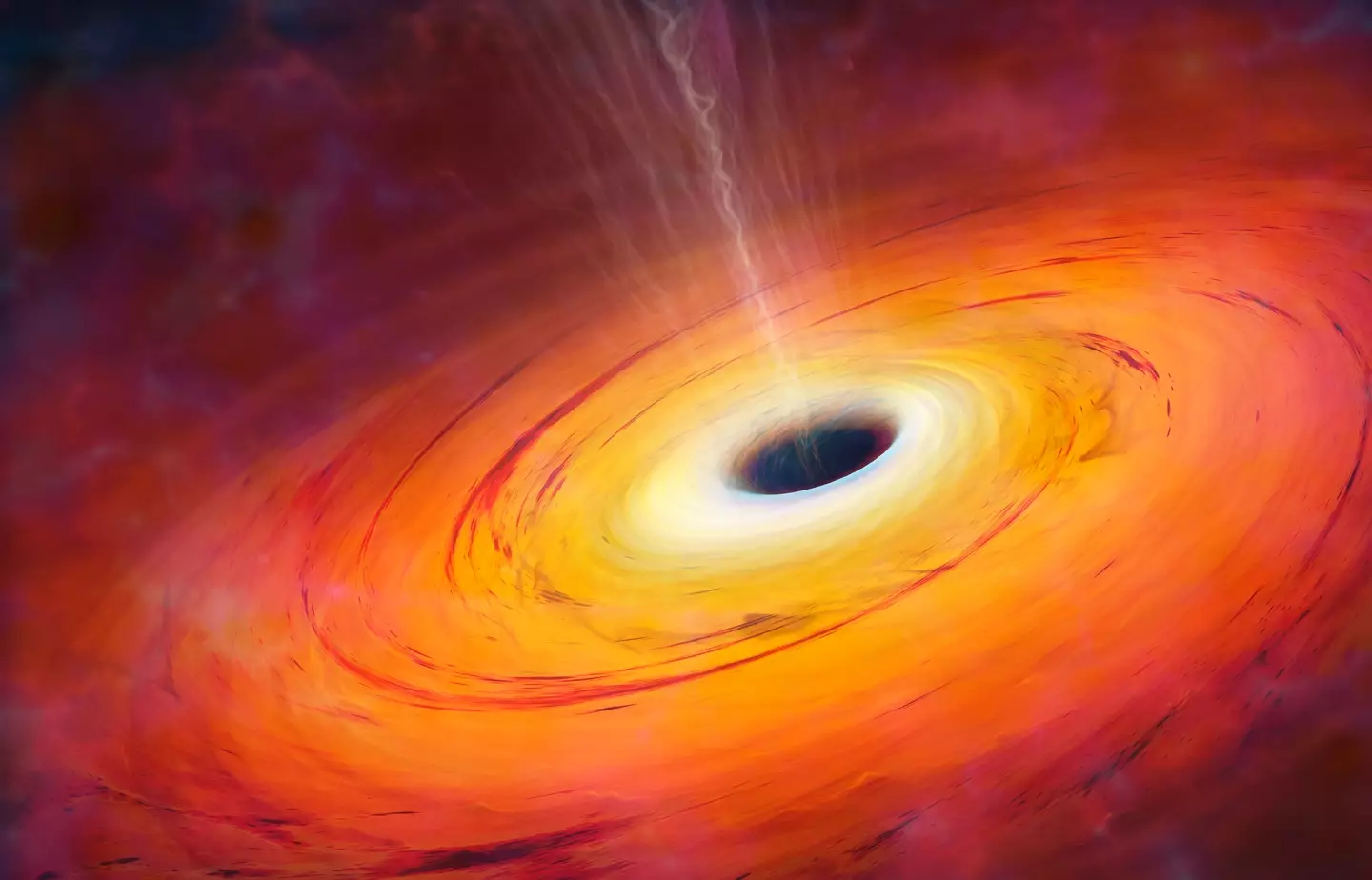Scientists in the US have discovered a first of its kind 'triple black hole' that has left boffins rather surprised given they had no idea it could even exist.
Usually, black holes come in pairs - that is, a black hole with one other object, with the two orbiting each other and slowly being dragged together over long periods of time.
Cosmic objects such as a star, or even another black hole, are what are usually seen alongside a black hole when they are discovered or monitored by astronomers.
But that isn't the only way they can work, with this recent discovery serving as evidence of that.
What is the triple black hole discovery?
Officially dubbed a 'black hole triple', it isn't three black holes - that would put even the most extreme sci-fi filmmakers into a nervous sweat.
In a study appearing this week in Nature, physicists at MIT and Caltech have revealed that they have observed the phenomenon for the first time - however, it was completely by chance.
But what is it? Well, the new find sees a central black hole that is actually part way through consuming a small, nearby star that’s spiralling in very close to the black hole, every six and a half days.
This is where things get surprising, with a second star also appearing to be circling the black hole, but at a much greater distance.
The physicists estimate this far-off companion is orbiting the black hole every 70,000 years; a huge difference to the other star doing the rounds once a week or so.

An illustration of the 'black hole triple' with two stars orbiting it (Jorge Lugo / MIT)
How did the triple black hole happen?
At this stage, scientists are questioning how the black hole is able to keep a gravitational pull on an object so far away, with experts asking about the origins of the black hole itself.
"Black holes are thought to form from the violent explosion of a dying star — a process known as a supernova, by which a star releases a huge amount of energy and light in a final burst before collapsing into an invisible black hole," MIT says.
The belief is that the black hole was formed as a result of a typical supernova; which is scientific speech for a powerful and luminous explosion of a star.
The explosion may have essentially booted the outer star away all those years ago.

Humanity loves black hole chatter (Getty Stock Images)
'Super exciting evolution'
“We think most black holes form from violent explosions of stars, but this discovery helps call that into question,” says study author Kevin Burdge, a Pappalardo Fellow in the MIT Department of Physics.
"This system is super exciting for black hole evolution, and it also raises questions of whether there are more triples out there."
On the two stars orbiting the black hole, Burge says it is 'almost certainly not a coincidence or accident'.
"We’re seeing two stars that are following each other because they’re attached by this weak string of gravity." he said.
"So this has to be a triple system."



![[WATCH] Katt Williams Reveals Wild Encounter with Harvey Weinstein: “He Offered Me Two Actresses Like Playing Cards”](https://thesource.com/wp-content/uploads/2025/01/FacebookLogoTest.png)














 English (US) ·
English (US) ·